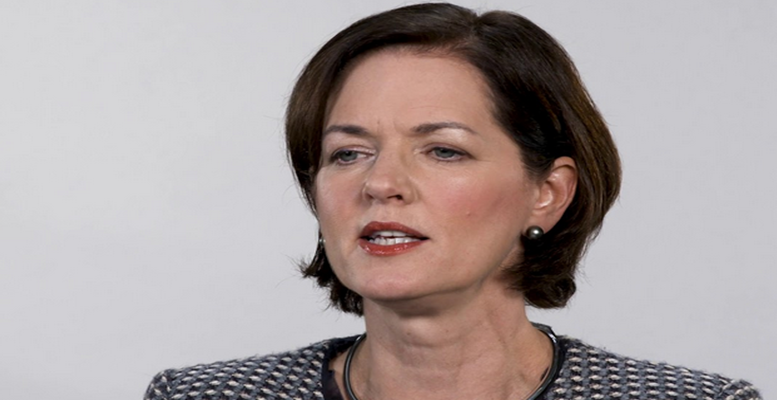Pablo Pardo (Washington) | “Even small entities can now have systemic consequences” says Margaret Franklin, presidente and CEO of the CFA Institute. In the English-speaking world, the acronym ‘CFA’ is often the first step towards serious entry into the financial sector. CFA’ stands for ‘Chartered Financial Analyst’, a qualification held by some 200,000 people worldwide and obtained through an examination administered by the CFA Institute. The CFA, chaired by Margaret Franklin, is not just an examination organisation. It is, rather, a professional organisation, setting codes of good practice and also analysing the state of the market, something for which it is in an enviable position given its tremendous membership.
As a financial sector professional, what do you think it is that Wall Street missed in the banking crisis initiated by Silicon Valley Bank (SVB)?
I don’t want to delve into that question because I think it’s a job that’s still being done. I think there were warning signs at Silicon Valley Bank, but we are in a context where the conditions that have prevailed over the last thirty years – of falling interest rates and inflation, and generally rising GDP – are changing. And when you enter such a transitional phase, where questions are being asked about how fast rates are rising to ‘tame’ inflation, you run into complications in places where you would not expect them. So we lack practice, and we also lack professionals who have the necessary experience to get through a period that in some ways is reminiscent of the 1970s and 1980s.
Is it a problem of experience, then, or does no one remember the 1994 bond market crash?
Part of the reason is that dynamics can change quickly. If a high interest rate environment comes along quickly, you can have some unintended consequences. The case of SVB or the UK’s LDI pension fund managers last autumn are crises that reveal that things we thought were demonstrably true are not necessarily so. There is now a lot of debate about non-bank financial institutions, and in that area, for example, it is clear that a number of systemic risks that have had a contagion effect need to be reassessed. We have moved from ‘too big to fail’ to ‘too small to fail’, that even small institutions can now have systemic consequences. Added to that are other factors that have nothing to do with market conditions. The impact of social media, for example, on the speed at which things happen, is extraordinary. That is something we are only beginning to see now. Gamestop was the first big example. But now we’re seeing it again.
And on top of all that is the impact of fintech, which means that people can withdraw their money from the bank in a matter of seconds.
Exactly. The speed at which we receive information – information of varying quality, which is sometimes simply misinformation – and the speed at which we make decisions has meant that the ‘speed of money’ has grown a lot. And then there is the question of taxonomy: do people understand what money is? When you talk about money market funds, people think of money. And they are not money funds.
Was the Fed not clear enough in ‘telegraphing’ its rate hikes, or in emphasising the importance it attached to inflation expectations?
What the Fed communicates is one thing, but how the market interprets it is another. Remember that monetary policy and central banks have gained prominence over the last fifteen years, but that, in a time of transition, reduces their ability to influence the market.





